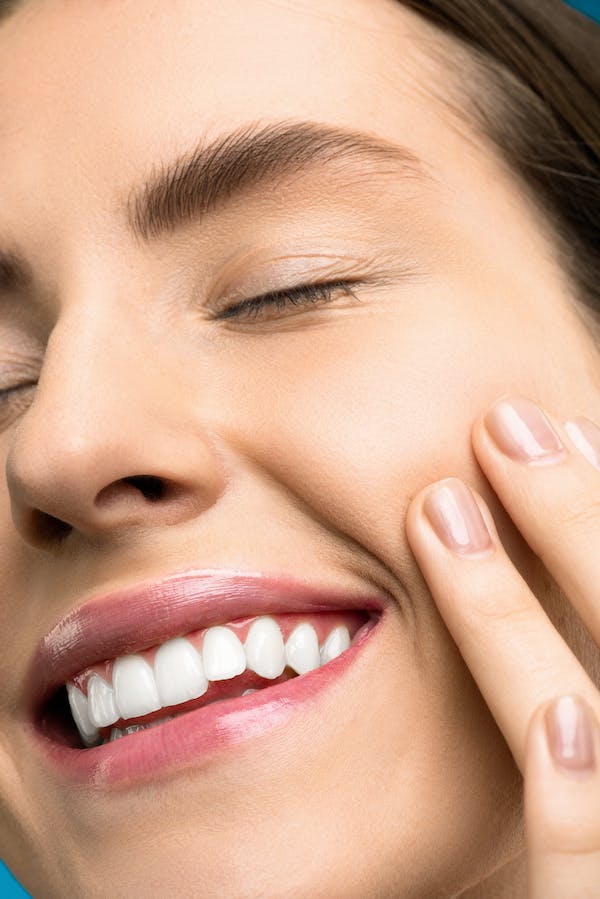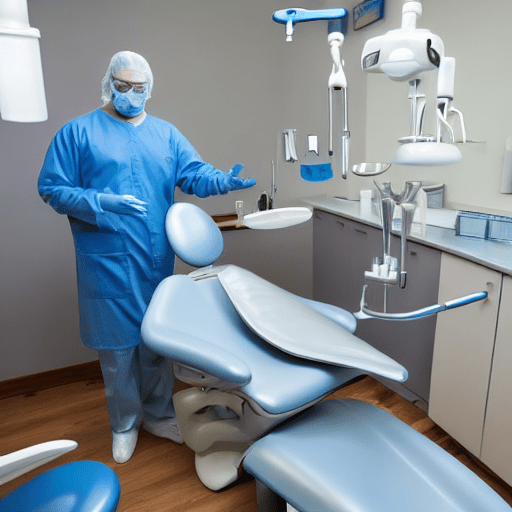The Best Age Youth Can Go For Wisdom Teeth Removal

Characteristics of Teeth Removal
Wisdom teeth removal, also known as third molars, are the last set of teeth to emerge in the human mouth. Typically, these teeth erupt between the ages of 17 and 25, a period commonly referred to as the “age of wisdom.” However, these molars often cause discomfort and can even lead to complications, necessitating removal. In the 21st century, the best age for youth to get teeth removal is a subject of much debate, with several factors influencing the decision.
Rite of Passage
Traditionally, teeth removal was a rite of passage for young adults in their late teens or early twenties. However, advances in dental technology and techniques have made the procedure safer and more comfortable, leading some to advocate for earlier removal. In general, the best age for wisdom tooth removal is between 16 and 19 years old. At this age, the teeth are still forming, making extraction easier and less traumatic.
Teeth Position
Another factor to consider is the positioning of the wisdom teeth. If the molars are impacted, meaning they are stuck beneath the gum line and cannot emerge properly, removal is often recommended. Depending on the degree of impact, earlier removal may be necessary to prevent infection or damage to adjacent teeth. X-rays and other imaging techniques can help determine the best time for extraction based on the position and development of the teeth.
Timing
Timing is also important when it comes to recovery. Wisdom teeth removal is a surgical procedure, and postoperative healing can take several days to several weeks. While older patients may require less time off work or school due to higher pain tolerances, younger patients have the advantage of quicker wound healing and less chance of complications such as dry socket.
Decision Making
Ultimately, the decision to remove wisdom teeth should be made on an individual basis. Factors such as the patient’s overall health, the number of teeth requiring extraction, and the accessibility of the teeth should all be taken into account. In some cases, wisdom teeth may not cause any problems and can be left in place. Your dentist or oral surgeon can help guide you in making an informed decision about the timing of your wisdom tooth removal.

Popular Youth Age for Wisdom teeth removal in your country
Wisdom tooth removal is a common dental procedure that many people undergo. However, the age at which people get their wisdom teeth removed varies across different countries. In many western countries, including the United States, the popular age for wisdom tooth removal is between the ages of 17 and 25. In my country, which is India, the popular age for wisdom tooth removal is slightly higher, with most people getting their wisdom teeth removed between the ages of 20 and 30.
One of the main reasons for this age difference is that people in my country tend to keep their wisdom teeth for longer. This is because dental care is not as advanced or as readily available as it is in western countries, and many people may not go to the dentist regularly. However, as people begin to experience pain or discomfort from their wisdom teeth, they may opt to get them removed. Additionally, many people in my country may not have access to dental insurance, which can make the procedure more expensive and make them postpone it until they are financially able to afford it.
The popular age for wisdom tooth removal varies across different countries. While western countries tend to remove wisdom teeth earlier, people in my country tend to wait until they are in their 20s or 30s. This age difference can be attributed to differences in access to dental care and insurance, as well as cultural beliefs around dental health. Regardless of the age at which people get their wisdom teeth removed, it is important to maintain good oral hygiene and regularly visit the dentist to prevent any dental problems.

When can Youth Consult a Dentist for Wisdom teeth removal?
Wisdom teeth, also known as third molars, typically start to emerge between the ages of 17 and 25. These molars are the last teeth to erupt in the mouth, and oftentimes, they can cause various dental issues. As a result, many young people wonder when it is appropriate to consult a dentist for teeth removal.
Firstly, it is vital to understand why wisdom tooth removal may be necessary. For some individuals, these teeth may become impacted, meaning they are unable to fully emerge from the gums. This can lead to pain, infection, and potential damage to adjacent teeth. In such cases, consulting a dentist for wisdom tooth removal becomes crucial, regardless of age.
Secondly, the age of the patient plays a significant role in determining when wisdom tooth removal is recommended. Young adults are often the ideal candidates for this procedure. This is because the roots of the wisdom teeth are not yet fully developed, making the extraction process easier and reducing the risk of complications. However, the precise age can vary, as everyone’s dental development progresses at a slightly different pace.
Thirdly, the symptoms experienced by the individual can indicate the need for wisdom tooth removal. If a person is experiencing persistent pain or discomfort in the back of their mouth, it may be a sign that their wisdom teeth are causing issues. Other symptoms can include swollen gums, jaw stiffness, and frequent headaches. Whenever these symptoms arise, it is advisable to consult a dentist promptly.
Additionally, the position and alignment of the wisdom teeth are important factors to consider. Even if a young person is not experiencing any symptoms yet, if the wisdom teeth are growing at an angle or in a way that may harm adjacent teeth, it is advisable to discuss removal options with a dentist. Regular dental check-ups can help monitor the development and position of the wisdom teeth.
Furthermore, the overall oral health of the young person is an essential aspect to consider. If other dental issues, such as gum disease or cavities, are present, these should be addressed before wisdom tooth removal. It is important to have a healthy mouth prior to undergoing any dental procedure, as it minimizes the risk of complications and ensures a faster recovery.
Moreover, the dentist’s professional opinion is crucial when determining the need for wisdom tooth removal. Dentists have the expertise to examine the condition of the teeth and provide a recommendation based on their observations. They can evaluate X-rays, conduct physical examinations, and assess the specific oral health needs of the patient to determine the appropriate course of action.
Additionally, each person’s pain tolerance and individual circumstances can influence when they choose to remove their wisdom teeth. Some individuals may prefer to wait until symptoms arise, while others may opt for proactive removal to avoid future complications. Regardless, it is important to seek professional guidance from a dentist to make an informed decision aligned with one’s circumstances.
Moreover, financial considerations may also affect whether a young person consults a dentist for wisdom tooth removal. Insurance coverage, personal finances, and affordability play a role in the timing of this procedure. However, it is crucial to remember that delaying the removal of problematic wisdom teeth can lead to more extensive and costly dental issues in the future.
The appropriate time for youth to consult a dentist for teeth removal varies based on several factors. These include the symptoms experienced, age, tooth alignment, overall oral health, professional opinion, personal circumstances, and financial considerations. By considering these factors, young people can make informed decisions about their dental health and ensure the timely and appropriate removal of their wisdom teeth.

How Does The Youth Life Style Guarantee Them of A Health Life?
The youth lifestyle plays a crucial role in guaranteeing them a healthy life. The choices and habits established during adolescence can significantly impact their physical and mental well-being in the long run.
Firstly, the youth lifestyle emphasizes the importance of regular physical activity. Engaging in sports, exercise, or other physical activities helps the youth to maintain a healthy weight, build muscle strength, and improve cardiovascular fitness. Regular exercise also prevents various chronic diseases like obesity, heart disease, and diabetes. Additionally, physical activity helps in reducing stress levels and improving mental well-being.
Secondly, the youth lifestyle encourages a balanced diet. Consuming a wide variety of nutrient-rich foods is crucial for proper growth, development, and overall health. A nutritious diet comprising fruits, vegetables, whole grains, lean proteins, and healthy fats provides the essential nutrients needed for the body’s optimal functioning. By adopting healthy eating habits, the youth reduce the risk of nutrition-related disorders such as malnutrition, vitamin deficiencies, and obesity.
Furthermore, the youth lifestyle promotes good sleep hygiene. Adequate sleep is vital for physical and mental health. It rejuvenates the body and mind, boosts cognitive performance, and improves mood and concentration. Establishing a regular sleep schedule and creating a soothing sleep environment can help youngsters achieve the recommended amount of sleep for their age group, positively impacting their overall well-being.
Another important aspect of the youth lifestyle is the avoidance of risky behaviors such as smoking, drug abuse, and excessive alcohol consumption. Such habits have severe detrimental effects on both physical and mental health. Abstaining from these habits reduces the risk of addiction, respiratory problems, liver damage, and mental health disorders. It also ensures the youth develop healthy coping mechanisms and make responsible decisions.
Moreover, the youth lifestyle encourages socialization and maintaining positive relationships. Having a strong support system, whether it be friends, family members, or mentors, fosters emotional well-being and reduces the risk of mental health issues. Positive relationships offer a sense of belonging, happiness, and support during challenging times, thus promoting a healthy lifestyle.
The youth lifestyle also emphasizes the importance of stress management techniques. Adolescence can be a stressful period due to academic pressure, hormonal changes, and social demands. Learning and practicing stress-reduction strategies such as meditation, deep breathing exercises, or engaging in hobbies can effectively manage stress levels. By doing so, the youth reduce the risk of stress-related illnesses and promote mental well-being.
In addition, the youth lifestyle inculcates a sense of responsibility towards personal hygiene. Maintaining good hygiene habits like regular bathing, brushing teeth, and washing hands helps prevent the spreading of diseases. Such practices contribute to overall health and well-being by minimizing the risk of infections.
Furthermore, the youth lifestyle emphasizes the significance of mental health awareness. Promoting open discussions about mental health and seeking help when needed reduces the stigma surrounding mental illnesses. By fostering a supportive environment, the youth can address mental health issues promptly and seek appropriate treatment, ensuring a healthier and happier life.
Additionally, the youth lifestyle encourages limiting screen time. Excessive use of electronic devices can lead to a sedentary lifestyle, eye strain, and poor posture. Setting limits on screen time and engaging in activities that promote physical, mental, and social well-being, such as outdoor sports or reading books, enhances overall health.
Lastly, the youth lifestyle stresses the importance of regular health check-ups and vaccinations. Routine medical check-ups, including physical examinations and vaccinations, help in early detection and prevention of diseases. Regular consultations with healthcare professionals enable youth to receive necessary guidance and adopt preventive measures, ensuring their long-term health.
The youth lifestyle guarantees a healthy life by promoting regular physical activity, balanced diet, adequate sleep, avoidance of risky behaviors, maintaining positive relationships, stress management, personal hygiene, mental health awareness, limited screen time, and regular health check-ups. By adopting these habits during adolescence, the youth can lay a solid foundation for a healthy and fulfilling life ahead.
Conclusion on Wisdom Teeth Removal
In conclusion, the best age for youth to go for wisdom teeth removal in the 21st century depends on several factors, including the position and development of the teeth, the degree of impact, and the patient’s recovery time. While some argue for earlier removal, the decision should be made on a case-by-case basis with input from a dental professional. By carefully considering these factors, patients can ensure a successful extraction with minimal discomfort and faster recovery time.
1 thought on “Best Age Youth Can Go For Wisdom Teeth Removal in The 21st Century”